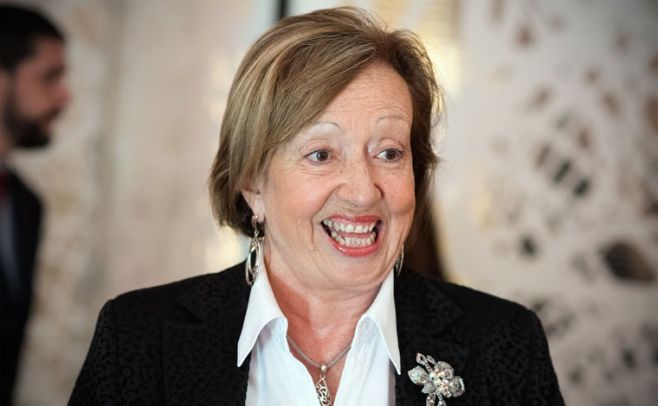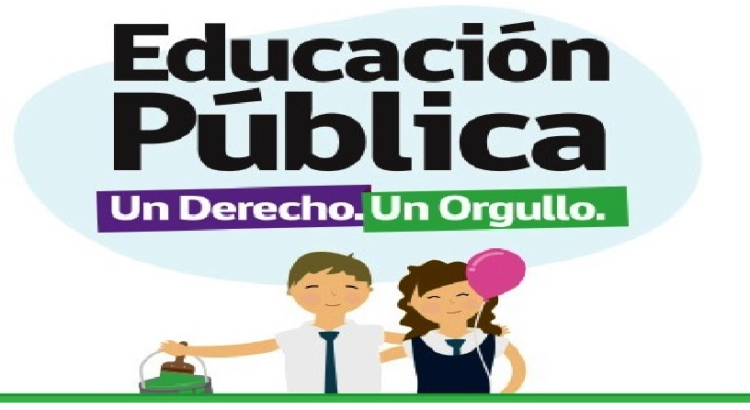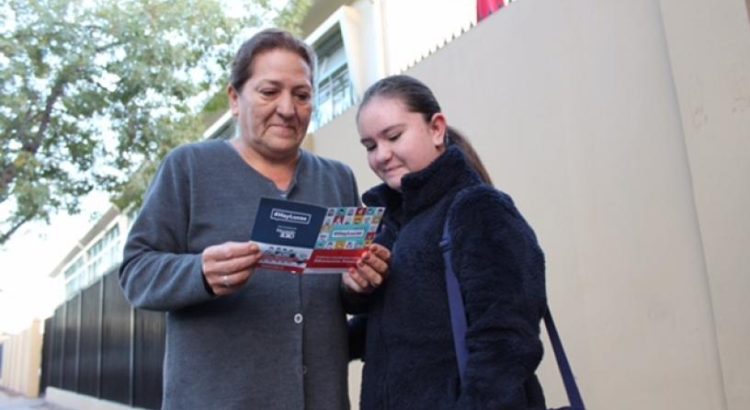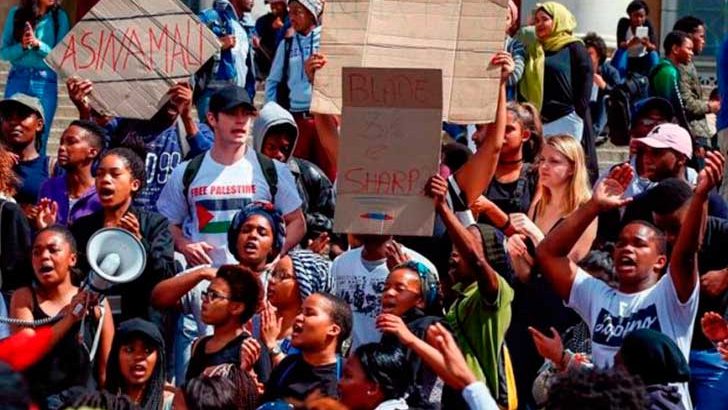América del Sur/Argentina/www.laizquierdadiario.com/Por: Hernán Cortiñas
Entre la docencia se está viralizando el capítulo “Cómo se ganó la prueba”, en donde se critica fuertemente el impacto de las evaluaciones estandarizadas como las que está impulsando Esteban Bullrich.
La familia animada más famosa del mundo está trayendo más de un dolor de cabeza para los planes del ministro nacional de Educación, Esteban Bullrich. Esta serie, que está en el aire desde 1991, se caracteriza por realizar una mordaz crítica al modo de vida estadounidense. Como no podía ser de otra forma, han abordado críticamente los sistemas de evaluaciones estandarizadas que se vienen implementando en EE.UU. desde hace años.
El capítulo en cuestión es el número 11 de la 20va temporada, titulado “Cómo se ganó la prueba”. En el mismo se reflejan satíricamente las nefastas consecuencias de la ley No Child Left Behind (NCLB), impulsada por el ex presidente George W. Bush, sancionada en el año 2002 y derogada en el 2015 por las protestas de familias y trabajadores de la educación.
De acuerdo con esta ley, los estudiantes de las escuelas estadounidenses debían pasar regularmente exámenes estandarizados. A su vez, en caso de “malos” resultados, se estipulaban una serie de reformas disfrazadas de “asistencia técnica”, pero que incluían desde la pérdida de fondos hasta el remplazo de todo el personal y la conversión en escuela charter o privada. El capítulo en cuestión muestra cómo estas evaluaciones estandarizadas y punitivas, en lugar de mejorar la educación, generan estrés y vaciamiento de la enseñanza en los establecimientos educativos.
Como era de esperar, se utiliza el personaje de Bart para parodiar la estigmatización que sufren los estudiantes con malos resultados. Por su parte, la profesora Krabappel, Skinner y el inspector Chalmers, dan cuenta del estrés docente y de cómo se adapta la enseñanza al adiestramiento para la resolución de exámenes de opción múltiple. De principio a fin, una gran clase animada de por qué no se debe imitar el sistema educativo norteamericano.
Además de viralizarse entre docentes, este capítulo está comenzando a usarse en varios establecimientos educativos para iniciar el debate con las familias y los estudiantes sobre las consecuencias, a largo plazo, de las reformas educativas basadas en evaluaciones estandarizadas. La creatividad docente y la organización por abajo está comenzando a minar los planes neoliberales de Cambiemos.
Importando recetas que ya fracasaron
En la Argentina, con el Operativo Aprender, pretenden comenzar a implementar una serie de reformas en este sentido. El Banco Mundial, su principal impulsor e ideólogo, recomienda ir paso a paso, de la mano de campañas mediáticas como la que está desarrollando Clarín, para imponer estas reformas “con la menor resistencia posible”. El primer paso recomendado es el desarrollo de pruebas estandarizadas censales, es decir para todos los estudiantes de determinado año o grado. Recién luego de instalar una “cultura de la evaluación” en las escuelas, es decir después de vencer la resistencia de docentes, estudiantes y familias, recomiendan la incorporación de premios y castigos.
El impacto de este tipo de evaluaciones puede ser muy fuerte si se aplican masivamente. Un riesgo es la publicación de sus resultados, especialmente cuando se hacen ordenamientos de escuelas basados en los puntajes obtenidos por los alumnos, dejando de lado el contexto de cada una. Esto genera una tendencia a una mayor fragmentación del sistema educativa, profundizando las desigualdades.
Pero las críticas no terminan ahí. Incluso defensores de las evaluaciones externas como James Popham señalan que “aspectos importantes del currículo se están haciendo a un lado, porque no son medidos por las pruebas”. Eso sin tener en cuenta la diversidad cultural que es negada e incluso menospreciada en evaluaciones con una lógica estandarizada.
Diane Ravitch, una de las responsables de implementar las evaluaciones externas en EE.UU., considera que el sistema de evaluaciones externas fracasó: “observando los efectos concretos de estas políticas, cambié de opinión: ahora considero que la calidad de la enseñanza que reciben los niños es más importante”. También advirtió que “si logran quitar a los maestros el derecho de negociar el contrato colectivo, silencian sus voces, con ello eliminan la única fuerza que puede detenerlos. Eso deja el camino abierto para recortar fondos y para entregar más escuelas públicas a las cadenas de escuelas chárter”. Asimismo, Ravitch, en un artículo en The Daily Beast, pronosticó que “en los próximos años, los alumnos estadounidenses serán sometidos a más y más exámenes, la industria de los exámenes engordará”. Un negocio redondo, a costa del derecho a la educación.
Que el rechazo a la evaluación se transforme en lucha por la educación pública
Ante el intento de reformas por evaluaciones externas es necesario contraponerle la lucha por una mejor educación pública, partiendo del reclamo de un aumento inmediato del presupuesto educativo al 10 % del PBI, para implementar un plan de construcción de escuelas que garanticen el derecho a la educación desde los 45 días y reformar la jornada laboral docente a 6 horas, con un salario mínimo igual a la canasta familiar y un tope de 4 horas frente al curso, destinando el resto del tiempo a tareas de corrección, preparación de clases y capacitación en servicio. Sólo así podremos garantizar las condiciones de enseñanza y de aprendizaje necesarias para mejorar la educación pública.
Por todo esto, es imperioso rechazar el Operativo “Aprender 2016” y lograr su anulación. Para ello, es preciso tomar el plan de lucha en nuestras manos, desarrollando un fuerte y profundo debate y exigir desde cada asamblea de escuela, distrital o provincial a la conducción de Ctera un paro nacional de 48 horas. el próximo 18 y 19 de octubre para derrotar de una vez las reformas neoliberales de Macri y el Banco Mundial.
Tomado de: http://www.laizquierdadiario.com/Los-Simpson-contra-el-Operativo-Aprender













 Users Today : 12
Users Today : 12 Total Users : 35460673
Total Users : 35460673 Views Today : 34
Views Today : 34 Total views : 3419779
Total views : 3419779